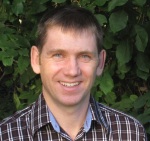This site profiles my research and teaching interests and accomplishments. I am a social scientist and human geographer with broad interests in human-environment relations, energy and environmental governance, science policy and rural change. Much of my published expertise concerns public and community engagement (including opposition and conflict) with renewable energy developments. Social acceptance of wind farms and other renewables is uneven and increasingly becoming a “wicked” planning problem (Rittel and Webber 1973). “Social license” issues associated with siting renewable energy infrastructure are on the rise even as the technological and economic barriers to a low carbon energy transition are diminishing. My research brings place-based studies of local responses and political theories of deliberation to bear on energy planning. Through the Positive Energy Project my focus extended to energy systems and regulation more broadly.

While I continue to research and write on environmental and energy issues, my current main area of professional and academic interest is science policy, research administration and knowledge mobilization. I am Director of the Office of Research and Scholarship at University Canada West. We build and develop research capacity, culture and outcomes. I also bring past experience managing a policy team in the Office of Chief Scientist at Natural Resources Canada as program manager at the Natural Sciences Engineering Research Council providing funding agency oversight and policy design for the operation of national research networks, and as Research Director of the Institute for Science, Society and Policy at the University of Ottawa.
I am Adjunct Research Professor at Carleton University’s Department of Geography and Environmental Studies.
Contact me at stewart.fast@gmail.com
The header image is of a ground-mounted solar electricity generator in eastern Ontario, Canada. Approximately 20,000 small (< 10 KW) household level photovoltaic generation sites like these are operating in the province. This kind of change brings new actors and new technical, social and political dimensions to energy systems and energy governance.
